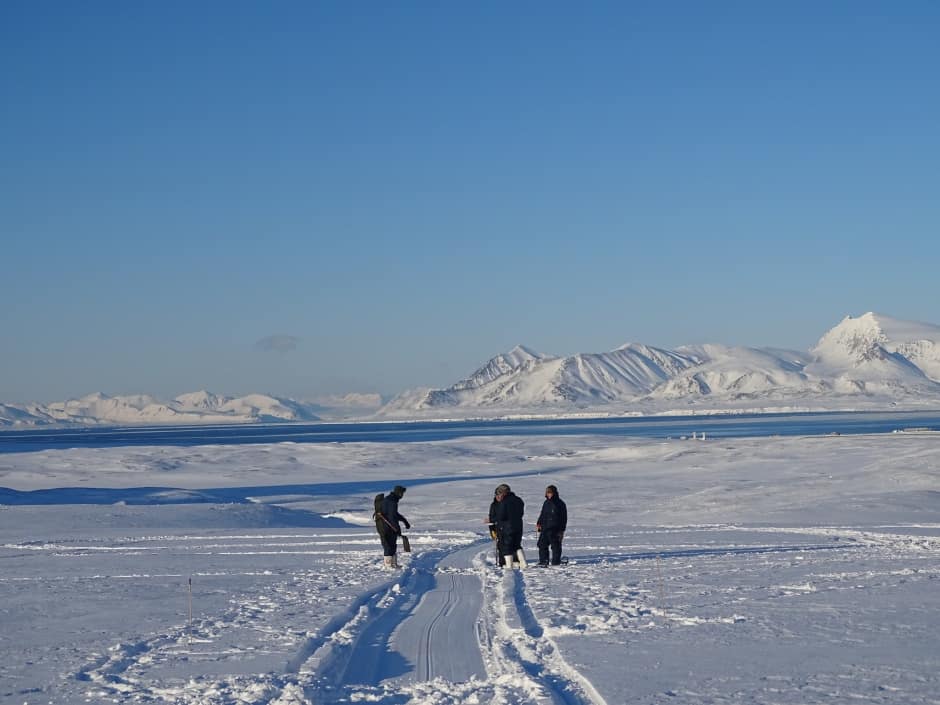Arctic discovery may point the way to South Pole’s “lost meteorites”
Metal detecting mission in Svalbard could help find meteorites that hold clues to Earth’s formation
Scientists from Manchester University have successfully tested metal detecting technology at the UK NERC Arctic research station in Svalbard. The technology may help find meteorites in Antarctica, which are believed to hold clues about the very earliest days of the solar system, but which have so far escaped detection.

Meteorites, rocky fragments that enter the Earth’s atmosphere and survive to strike the surface (as opposed to meteors, which burn up completely in the atmosphere) are rich in iron. Although Antarctica is liberally littered with rocks, which are easy to find because they stand out against the background of light snow and ice, meteorites are notoriously difficult to find; it is thought that the sun’s rays warm the iron-rich material up more than more mineral-heavy deposits, and that the warm metal melts the surrounding ice, making the meteorites sink and become trapped just below the surface. Because meteorites are often relics from the cloud of debris that formed the sun and planets of the solar system - with iron meteorites particularly valuable because they come from the core of small planets that were destroyed by impacts - they are keenly sought by researchers; the pristine conditions of Antarctica would make them particularly valuable and their elusive nature is a matter of some frustration.
Register now to continue reading
Thanks for visiting The Engineer. You’ve now reached your monthly limit of news stories. Register for free to unlock unlimited access to all of our news coverage, as well as premium content including opinion, in-depth features and special reports.
Benefits of registering
-
In-depth insights and coverage of key emerging trends
-
Unrestricted access to special reports throughout the year
-
Daily technology news delivered straight to your inbox










Water Sector Talent Exodus Could Cripple The Sector
Maybe if things are essential for the running of a country and we want to pay a fair price we should be running these utilities on a not for profit...